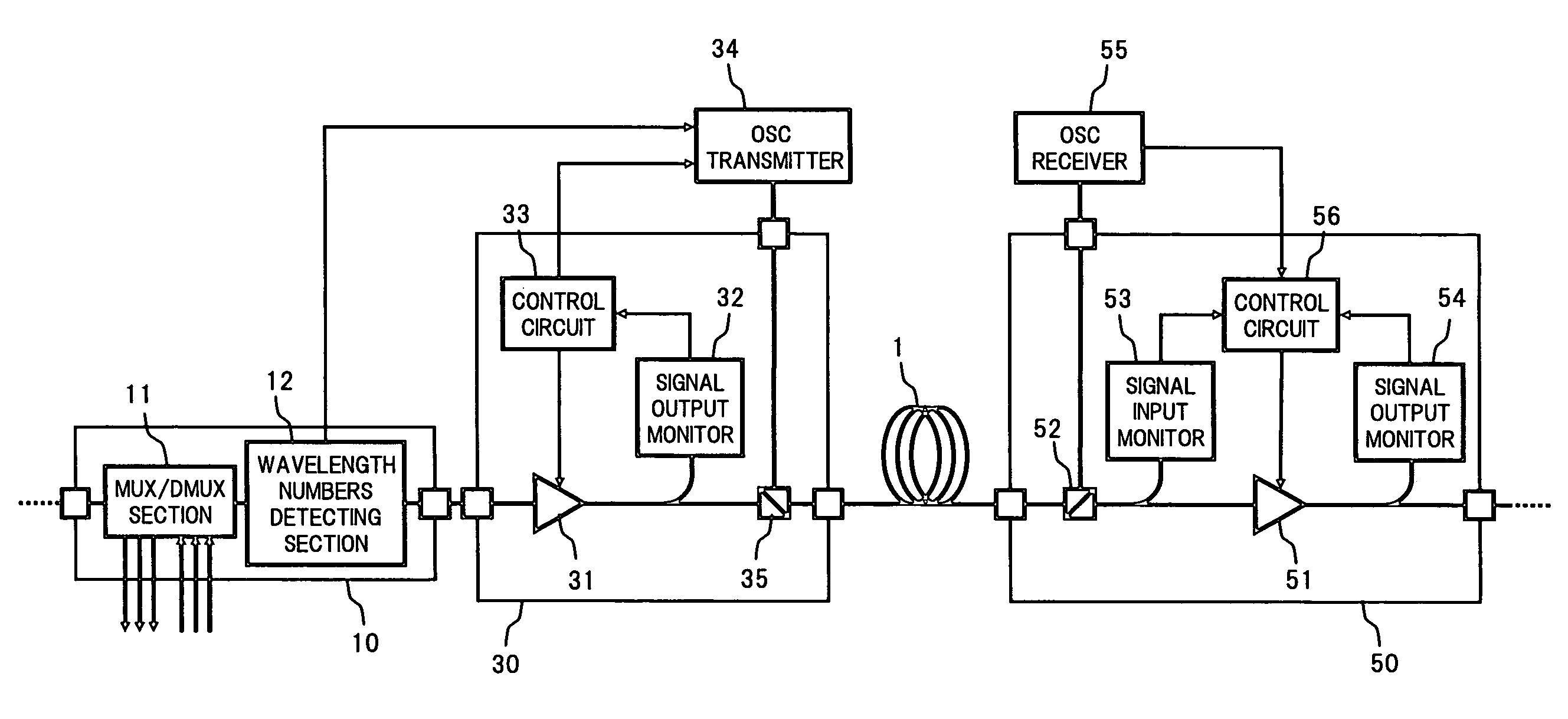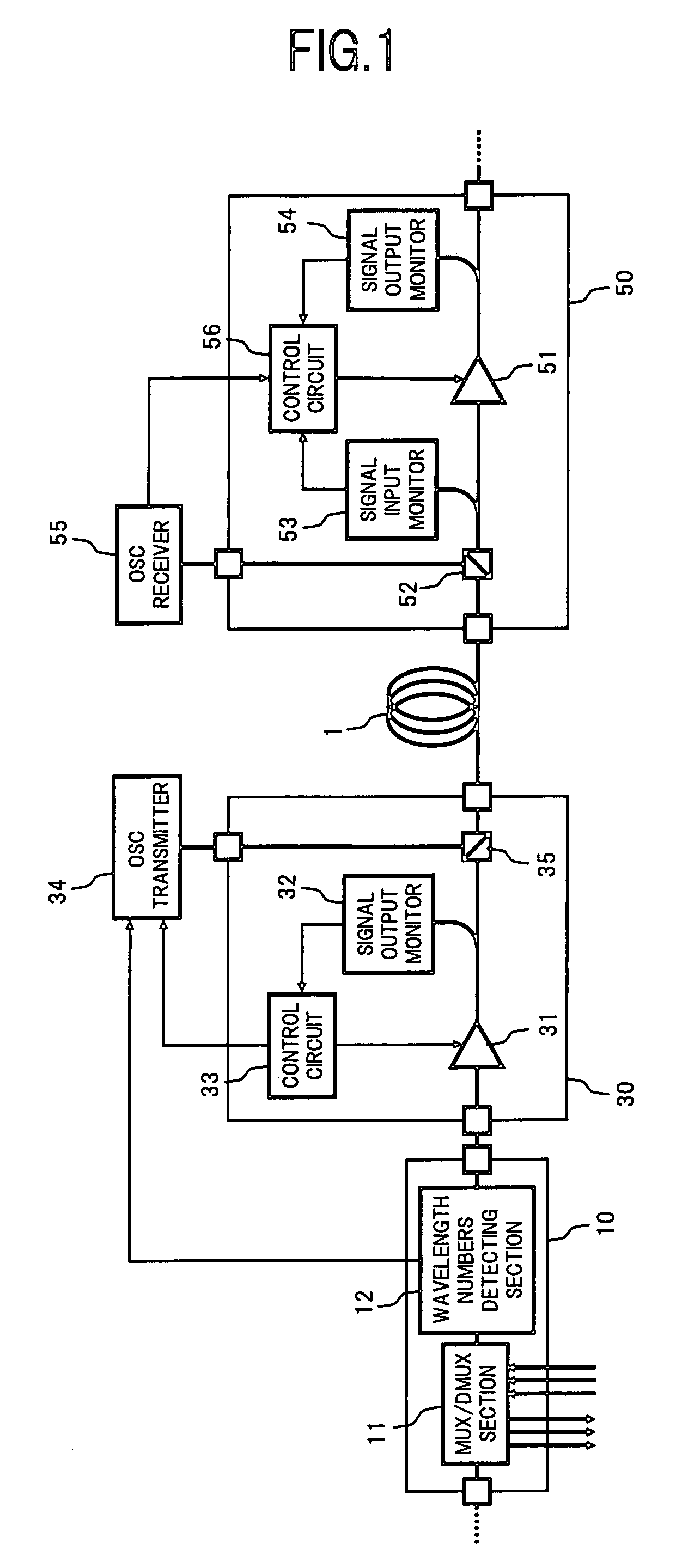WDM optical transimission system and optical amplifying apparatus
a transceiving system and optical amplifier technology, applied in the field of wdm optical transceiving system and optical amplifier, can solve the problems of signal level variation, transmission path fiber loss, transmission path loss change, etc., to improve signal reception sensitivity, and reduce the control speed of the effect of performance cycl
- Summary
- Abstract
- Description
- Claims
- Application Information
AI Technical Summary
Benefits of technology
Problems solved by technology
Method used
Image
Examples
first embodiment
[0033]FIG. 1 is a block diagram showing a configuration of an essential part of a WDM optical transmission system using optical amplifiers according to the present invention.
[0034]In FIG. 1, the WDM optical transmission system in the present embodiment comprises, for example: an optical multiplexing / demultiplexing unit 10 which multiplexes / demultiplexes optical signals of desired wavelengths in a WDM signal light to be transmitted over a transmission path fiber 1 serving as an optical transmission path; an optical amplifying unit 30 connected to an output end of the optical multiplexing / demultiplexing unit 10; and an optical amplifying unit 50 to which the WDM signal light output from the optical amplifying unit 30 is input via the transmission path fiber 1. Herein, the optical multiplexing / demultiplexing unit 10 and the optical amplifying unit 30 constitute a part of an optical add-drop multiplexer (OADM) node on the WDM optical transmission system, and the optical amplifying unit ...
second embodiment
[0054]Next, there will be described the present invention.
[0055]In the system configuration of the first embodiment shown in FIG. 1, in the case where the number of wavelengths of the WDM signal light which is sent from the upstream side optical amplifying unit 30 to the downstream side optical amplifying unit 50 becomes 0 wave, resulting in the wavelength discontinuity, it becomes difficult to monitor the span loss in the transmission path fiber 1. The reason of this is such that, as shown in the above formula (1), although the span loss SL is calculated using the total output power POUT(T) of the upstream side optical amplifying unit 30, which is obtained based on the signal output level information from the OSC receiver 55, and the total input power PIN(R) of the downstream side optical amplifying unit 50, which is obtained based on the signal input level information from the signal input monitor 53, if there occurs the wavelength discontinuity wavelengths in the WDM signal light...
PUM
 Login to View More
Login to View More Abstract
Description
Claims
Application Information
 Login to View More
Login to View More - R&D
- Intellectual Property
- Life Sciences
- Materials
- Tech Scout
- Unparalleled Data Quality
- Higher Quality Content
- 60% Fewer Hallucinations
Browse by: Latest US Patents, China's latest patents, Technical Efficacy Thesaurus, Application Domain, Technology Topic, Popular Technical Reports.
© 2025 PatSnap. All rights reserved.Legal|Privacy policy|Modern Slavery Act Transparency Statement|Sitemap|About US| Contact US: help@patsnap.com



